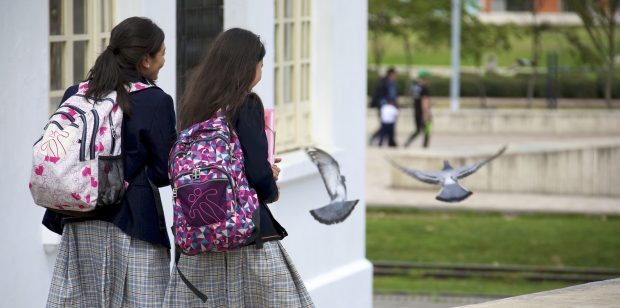
Today’s Education in the Media blog looks at the Edge Foundation report, the next stage of the Selective Schools Expansion Fund, and Minister Gibb’s ambition for girls to succeed in science.
Edge Foundation Report
Today, Monday 11 February, Robert Halfon, chair of the Education Select Committee, is giving a speech as part of the launch of the Edge Foundation report, where he said that GCSEs should be replaced with a wider baccalaureate-style qualification. The report has so far been covered by BBC Online, The Guardian, The Times, Daily Mirror, Metro, Daily Express, FE Week and TES, as well as running on Today Programme bulletins.
In order to encourage schools to offer a broad range of academic subjects, the government introduced the English Baccalaureate (EBacc) to reward those achieving in English, maths, sciences, languages and humanities. The new GCSEs are more rigorous and provide the core academic knowledge needed to give students an appropriate.
A DfE spokesperson said:
The Education Secretary has been clear that we want children to be taught a broad and balanced curriculum and to explore the widest possible range of subjects to study. That is why students are encouraged to study the EBacc subjects at key stage 4 and have the opportunity study a wide range of other GCSE or vocational qualifications alongside that.
GSCEs are the gold standard qualification at age 16 and a passport to further study and employability – they were recently reformed so that their demand matches that in other high performing countries and better prepare students for work and further study.
We are also taking forward reforms from the Independent Panel on Technical Education to give students a clear choice between an academic or technical path at aged 16. T Levels, alongside apprenticeships, will form the basis of our high quality technical education offer.
Selective Schools Expansion Fund
Today, we are launching the next round of the Selective Schools Expansion Fund (SSEF). This is the second year of the fund, which is designed to give money to selective schools that can demonstrate how they will improve access for disadvantaged pupils in order that they can expand. There was exclusive coverage of this in the Daily Mail.
Today’s announcement builds on the 825,000 new school places created since 2010, and the one million this Government is on course to create by 2020.
Our ambition is for disadvantaged pupils to have access to even more good or outstanding school places with the boost of the £50 million fund.
School Standards Minister, Nick Gibb, said:
Selective schools are some of the highest performing schools in the country and so it’s right that more pupils should have the opportunity to benefit from the world class education they provide. It’s also right that access to those places should fair to pupils from all backgrounds, which is why selective schools must demonstrate how they are going to admit more pupils from disadvantaged backgrounds, if they are going to expand.
It is also a requirement that selective schools work with other schools in their area. Whether through a multi academy trust or an informal partnership, we want to see more selective schools using their expertise to improve opportunities for a wider group of young people.
Women and Girls in Science
Today is International Day of Women and Girls in Science. To mark this, the School Standards Minister Nick Gibb has been encouraging more girls to take up STEM subjects.
His comments were covered in I News, TES and the Express, as he emphasised his determination to continue the growing number of girls taking up STEM subjects and helping to dispel misconceptions for future generations.
School Standards Minister Nick Gibb said:
There is growing demand for STEM skills, particularly for sectors such as engineering, construction and manufacturing, and it’s essential that gender is no barrier to ensuring that all young people have the knowledge and skills to succeed in our outward looking and dynamic economy.
We’ve made considerable progress in increasing girls’ participation in STEM subjects since 2010, with the proportion of girls taking STEM A Levels increasing by a quarter, and 25% more women accepted onto full-time STEM undergraduate courses.”
We are determined to continue this trend, and that’s why we are funding programmes to increase the take up of maths, computing and physics, and have reformed the school curriculum to make sure it meets the needs of employers.
This research, however, shows that certain misconceptions are still prevalent, and we all have a part to play, including parents and teachers, to dispel misconceptions about STEM subjects and help encourage our scientists of future generations.
Follow us on Twitter and don’t forget to sign up for email alerts.